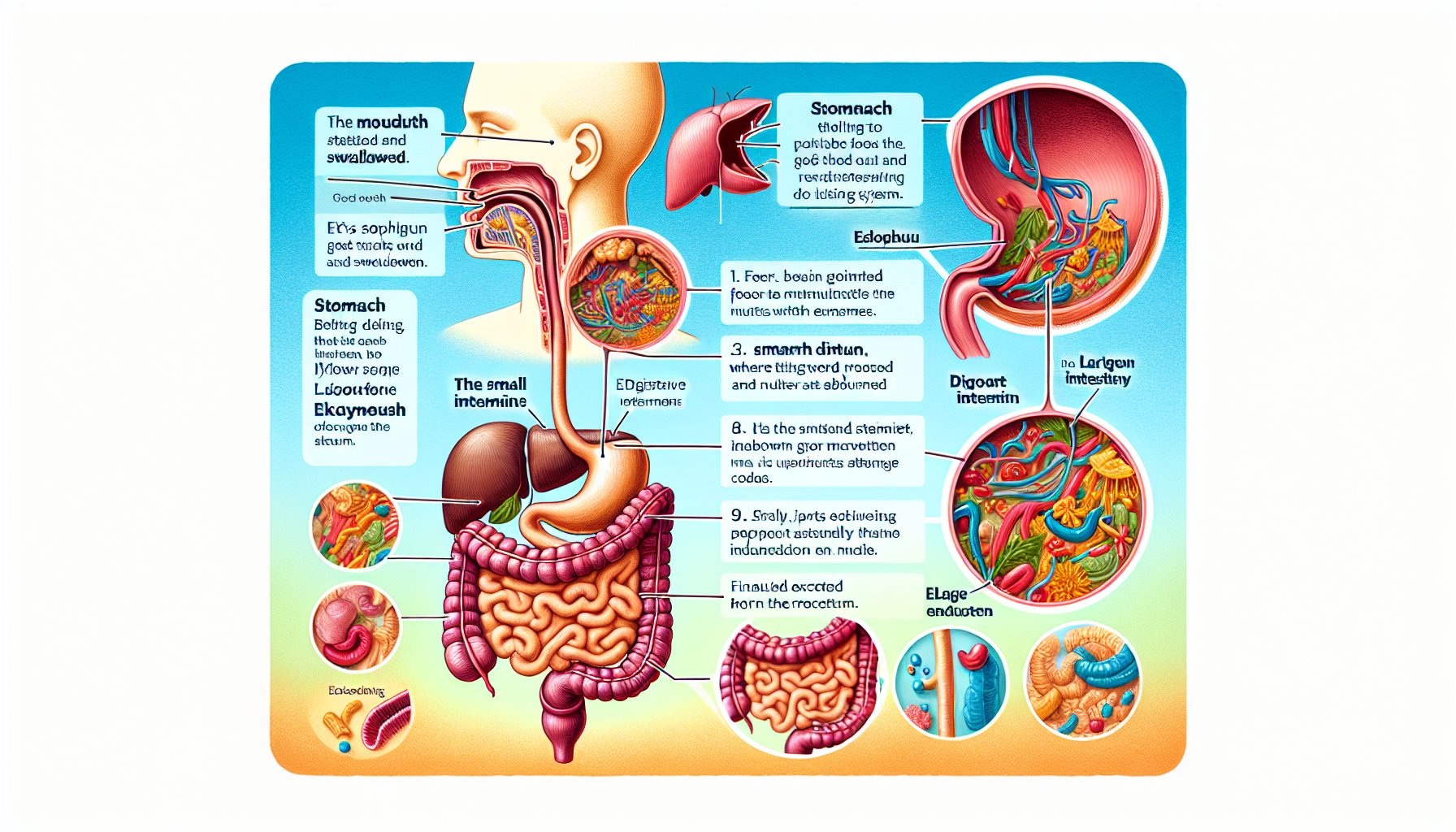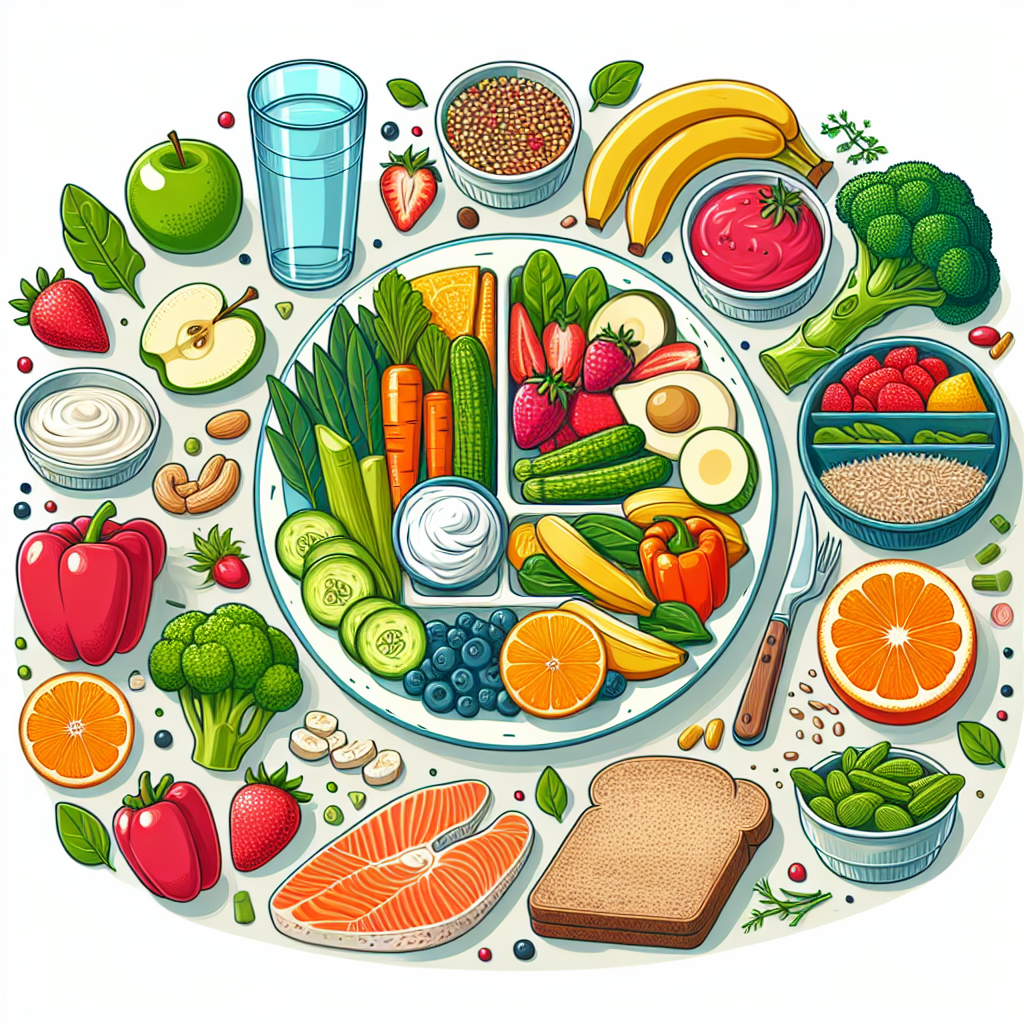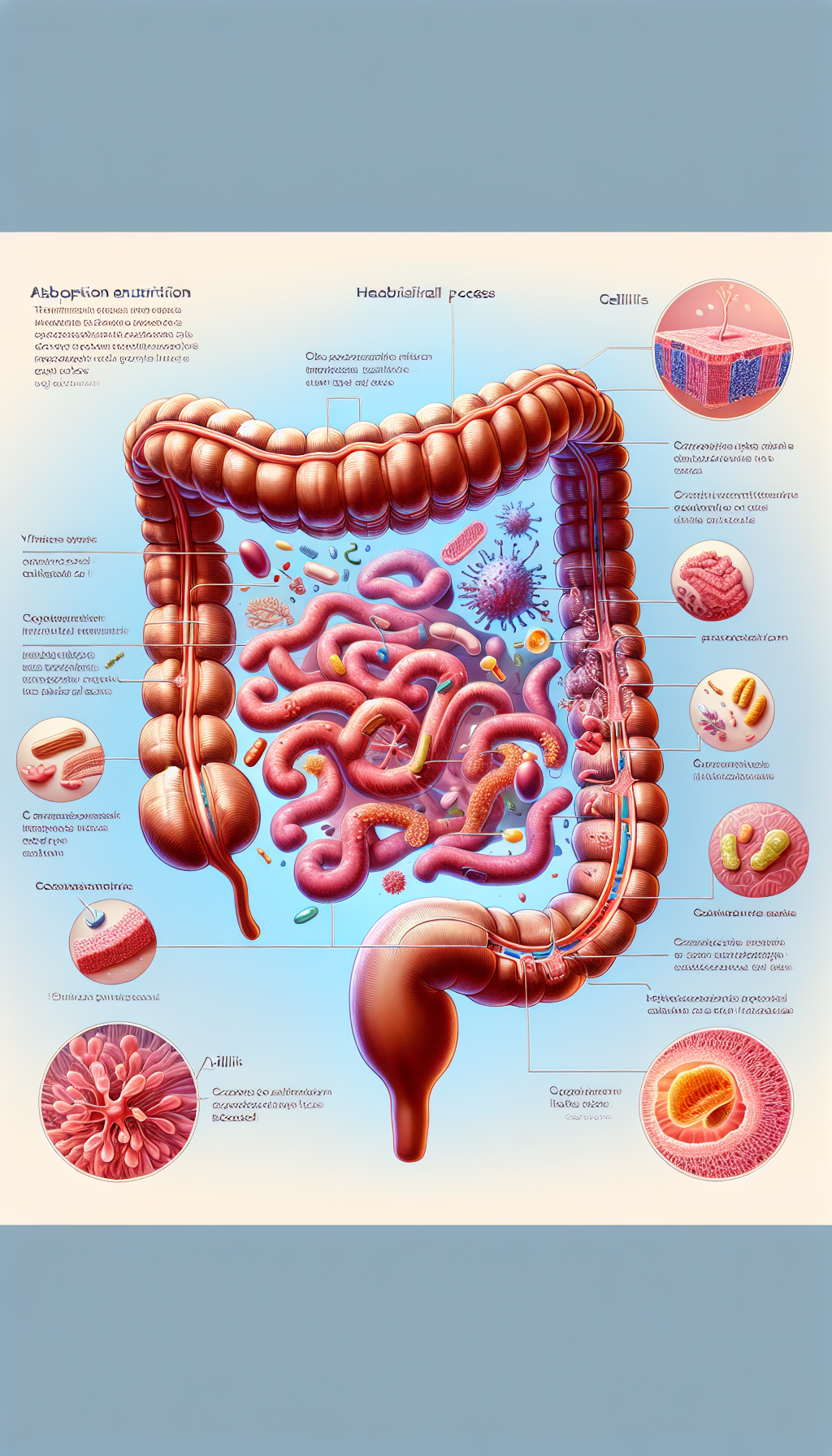Nutrient absorption is a critical process that takes place within our digestive systems, allowing our bodies to utilize the vitamins, minerals, and other nutrients we ingest through food. For individuals looking to optimize their digestive wellness, understanding and enhancing nutrient absorption can lead to significant health benefits.
Understanding Nutrient Absorption
Nutrient absorption occurs primarily in the small intestine, where digested food particles are transported into the bloodstream. This complex process is influenced by various factors, including the health of the digestive tract, the presence of necessary digestive enzymes, and the balance of gut microbiota.
A well-functioning digestive system can mean the difference between nutrients being effectively absorbed or wasted. The state of our digestive health is, therefore, paramount to our overall well-being.
Factors Affecting Nutrient Absorption
Several factors can impact how efficiently our bodies absorb nutrients:
The State of Digestive Health
Issues like inflammation, infections, or conditions like Irritable Bowel Syndrome (IBS) can impair the intestine’s ability to absorb nutrients properly. Maintaining a healthy gut lining is essential for absorption.
Balanced Gut Microbiota
The gut microbiome plays a crucial role in nutrient absorption. A balanced microbial community can improve digestion and the synthesis of certain vitamins.
Adequate Digestive Enzymes
Digestive enzymes break down food particles into smaller molecules, making absorption possible. Insufficiencies in these enzymes can lead to malabsorption.
Dietary Composition
The types of foods we eat can also influence absorption. Some nutrients are absorbed better in the presence of others, such as fat-soluble vitamins (A, D, E, and K) which require dietary fat to be absorbed.
Hydration and pH Levels
Proper hydration and balanced pH levels in the stomach and intestines are necessary for enzymes to function optimally and for nutrients to be absorbed efficiently.
Strategies for Improving Nutrient Absorption
To maximize nutrient absorption, consider the following strategies:
Eat a Balanced Diet
Incorporate a variety of foods in your diet to ensure a broad spectrum of nutrients, which can work in synergy to improve absorption. Understanding the impact of soluble and insoluble fiber on digestive wellness is also crucial as fiber can aid in the movement of food through the gut and support a healthy microbiome.
Manage Digestive Conditions
If you have a digestive condition, managing it effectively is key. This might include dietary changes, medication, or other therapies.
Support Your Gut Microbiota
A diet rich in prebiotics and fermented foods can nourish and support a healthy gut microbiome, which in turn can enhance nutrient absorption. The importance of prebiotic foods in gut health cannot be overstated.
Supplement Wisely
Certain supplements can support digestive health and enzyme production, but it’s important to choose high-quality products and use them judiciously. Consult with a healthcare provider before starting any new supplements.
Stay Hydrated
Drinking enough water is essential for maintaining the mucosal lining of the intestines and for the proper functioning of enzymes.
Practice Mindful Eating
Eating in a relaxed state and thoroughly chewing your food can improve digestion and nutrient absorption, as it allows for the proper breakdown of food and the release of digestive enzymes.
Advanced Approaches to Enhance Nutrient Absorption
For those looking for more advanced strategies, consider the following:
Targeted Enzyme Supplementation
If you have a known deficiency in specific digestive enzymes, targeted supplementation can be beneficial. This should be done under the guidance of a healthcare professional.
Probiotic Therapy
Advances in probiotic therapy offer tailored strains of beneficial bacteria that can support nutrient absorption. For more information, explore the advances in probiotic therapy for digestive disorders.
Periodic Fasting
Short-term, controlled fasting may help to "reset" your digestive system and improve its functioning. However, evaluating the effects of prolonged fasting on the digestive system is crucial to ensure it’s done safely.
Reducing Anti-Nutrients
Some foods contain substances that can inhibit nutrient absorption. Reducing intake of these foods or preparing them in ways that minimize these substances can be beneficial.
External Resources for Further Reading
- Gut Microbiota for Health: An expert resource on gut microbiota and its impact on health, offering in-depth information on how a balanced gut can aid nutrient absorption.
- National Institute of Diabetes and Digestive and Kidney Diseases (NIDDK): Provides comprehensive information on digestive diseases and how they can affect nutrient absorption.
- American Society for Nutrition: A professional organization that publishes the latest research on nutrition, including how dietary patterns can affect nutrient absorption.
Conclusion
Maximizing nutrient absorption is not just about what we eat, but also how our bodies process and utilize these nutrients. By understanding the factors that influence absorption and implementing strategies to support digestive health, we can take meaningful steps towards achieving optimal wellness.
Remember, an individual’s needs can vary, so it’s important to consult with a healthcare provider to tailor these strategies to your personal health profile. With the right approach, you can enhance your digestive wellness and ensure your body is getting the most out of the nutrients it needs.



